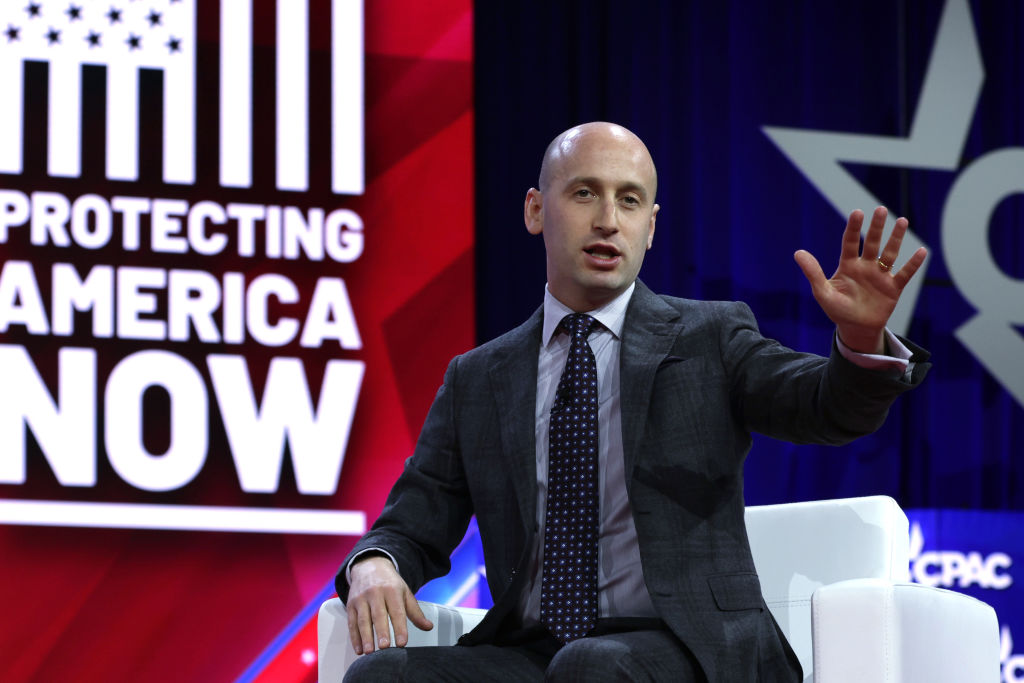Trump’s Second-Term Policy Agenda
Happy Thursday!* Two days ago, Matt Hilton was your run-of-the-mill bee specialist. Then, he cleared a swarming colony of bees from the top of the Arizona Diamondbacks’ backstop, ending an hours-long bee delay in a game against the Los Angeles Dodgers.
“Thank you bee guy,” the jumbotron read. The crowd chanted, “M-V-P!” He threw out the first pitch. And just like that, a star was born.
Quick Hits: Today’s Top Stories
- The Biden administration on Wednesday announced new sanctions on more than 280 individuals and organizations—including entities in China and the United Arab Emirates (UAE)—that the State Department said were aiding Russia’s invasion of Ukraine, including by providing components for Russian drones and missiles. In addition, the administration announced sanctions on three people linked to the death of Russian opposition politician Alexei Navalny while he was in custody. “The United States will continue to use the tools at its disposal to disrupt support for Russia’s military-industrial base and curtail Russia’s use of the international financial system to further its war against Ukraine,” the State Department said in a statement.
- The parliament of the Caucasus nation of Georgia approved a second reading on Wednesday of a controversial bill that would register any media and non-commercial organization in the country receiving greater than 20 percent foreign funding as “bearing the interests of a foreign power.” The legislation has inspired weeks of protests, which police on Wednesday tried to disperse using stun grenades and tear gas. This is the Georgian parliament’s second attempt to institute the Russian-style “foreign agent” law, which also prompted protests last spring.
- The United Methodist Church on Wednesday reversed its 40-year ban on ordaining gay clergy and effectively voted to allow same-sex marriages. The measure related to clergy passed overwhelmingly in a 692-51 vote during the church’s General Conference meeting in Charlotte, North Carolina.*
- President Joe Biden announced Wednesday he is “canceling” $6.1 billion in student debt for 317,000 attendees of the Art Institutes, a private art school system that permanently closed in September. “This institution falsified data, knowingly misled students, and cheated borrowers into taking on mountains of debt without leading to promising career prospects at the end of their studies,” Biden said in a statement.
- A bipartisan group of senators—led by Republican Sen. Ted Cruz of Texas and Democratic Sen. Brian Schatz of Hawaii—reintroduced a bill Wednesday that would set a minimum age requirement for social media accounts. The legislation—first introduced by Schatz last year—would set a social media minimum age requirement at 13 years old, and at 17 years old for “feeding algorithmically-boosted content.” Additionally, the proposal would block social media apps and websites on public school networks and devices.
- GOP Rep. Marjorie Taylor Greene of Georgia announced on Wednesday she will force a vote next week to oust Speaker Mike Johnson, a motion that is bound to fail after House Democrats confirmed Tuesday they would block it. Only two other House GOP members—Rep. Thomas Massie of Kentucky and Rep. Paul Gosar of Arizona—have publicly supported Greene’s push to remove Johnson over his decision to usher additional Ukraine aid through Congress.
- In a 320-91 vote on Wednesday, the House passed the bipartisan Antisemitism Awareness Act, intended to enforce federal anti-discrimination laws against antisemitism on college campuses. If enacted, the Department of Education would adopt the International Holocaust Remembrance Alliance’s definition of antisemitism and could include calls for the destruction of Israel in prohibited speech. The bill’s future in the Democratic-controlled Senate is uncertain.
- The Federal Reserve on Wednesday opted to hold interest rates steady at 5.25-5.50 percent, and central bankers acknowledged that inflation was no longer progressing toward the Fed’s 2 percent goal. “The economic outlook is uncertain, and the Committee remains highly attentive to inflation risks,” the bankers said. Still, Fed Chair Jerome Powell added that it’s “unlikely” their next move would be a rate hike.
Trump, Take Two

With a little more than six months until Election Day, most mainstream coverage of former President Donald Trump’s third campaign for the White House has focused on his legal travails and his increasingly violent rhetoric. Comparatively little attention has been devoted to exploring what policy could look like in another Trump administration—and understandably so, since the Trump campaign is explicitly premised on retribution, rather than policy goals.
But the race between Trump and President Joe Biden stands more or less in a statistical tie. And while it’s not yet clear what kind of support either president would have in Congress if reelected, both have proven themselves more than willing to wield—and stretch—their executive powers to enact desired policy outcomes. So, it’s worth examining what plans Trump has forecasted in his third campaign and the steps the Biden administration is taking to try to preserve its executive policymaking into a second Trump term.